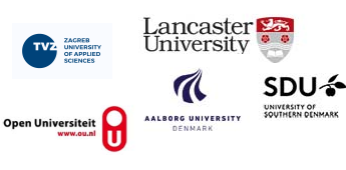

Surveillance, (dis)trust and teaching with plagiarism detection technology
Jen Ross, Hamish Macleod
University of Edinburgh, Edinburgh, United Kingdom.
Keywords
surveillance, trust, plagiarism detection, teaching with technology
Abstract
Key dimensions of digital education practices are shaped by instrumental goals such as quality, efficiency and transparency. These goals are often addressed through high-level technology decisions which should be understood in terms of visibility and surveillance. Monitoring technology is deployed for multiple purposes in the contemporary university, in contexts from learning analytics to attendance tracking. This paper is a theoretical exploration of how the technologically-mediated practice of plagiarism detection, in the context of surveillance and distrust, might affect relationships amongst teachers, students and institutions. Drawing on Lyon's (2017) concept of 'surveillance culture', it examines the types of participation that are enacted in relation to managing student writing. It critiques the assumption that automated plagiarism detection is a neutral technology which can be used benevolently (guiding students gently towards 'good academic practice'). Instead, it suggests that this technology acts with and on already problematic conditions of digital visibility which are also seen in the wider digital culture beyond the university, and which require critical and thoughtful responses from within the academy. Logics of surveillance are strongly at work in practices which attempt to regulate student behaviour through the exposure of their writing to algorithmic scanning and monitoring. These logics frame students as in need of careful monitoring to ensure learning and teaching runs smoothly, and framing academic writing as a space of dishonesty which is both rampant and solvable through technology. Routines of plagiarism detection intervene negatively in one of the central facets of student-teacher relationships: the production and assessment of student work. Where these relationships become risk-averse and mutually suspicious, trust is blocked or lost and not easily regained. Effective strategies of resistance require finding ways to re-sensitise ourselves and our students to the values we want to prioritise in our classrooms, and offering means by which students can voice their responses to surveillance cultures in higher education; and addressing issues at strategic levels within our institutions and the sector more widely by developing robust mechanisms for engaging in critical debate, discussion about and review of technology platforms and practices.
Joint Organising Institutions
Open University of The Netherlands
| Past Conference Proceedings | Contact |